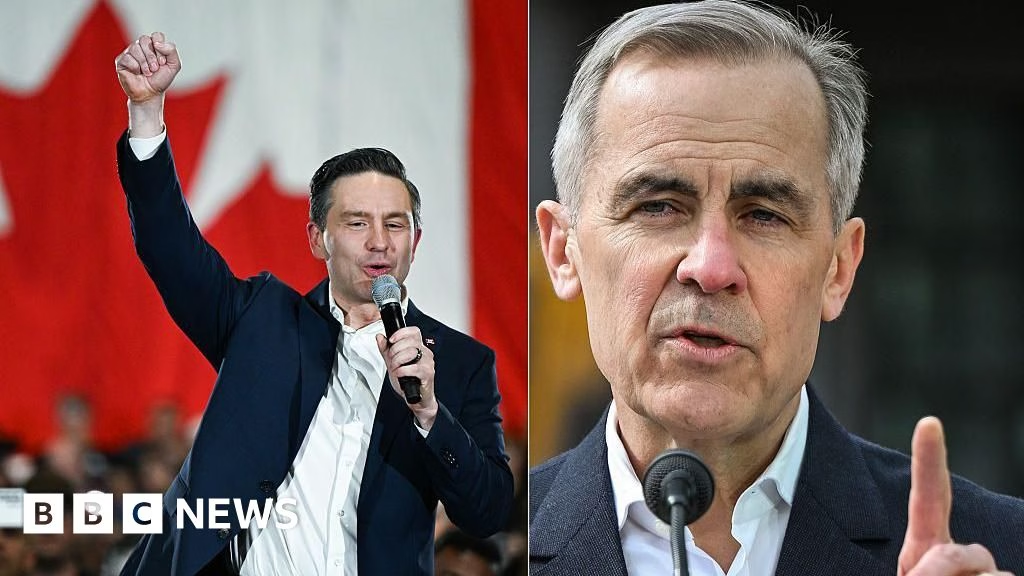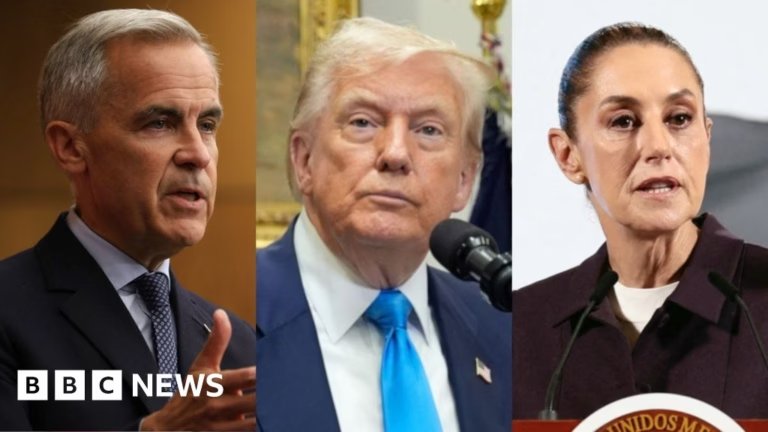BBC News
.webp) Getty Images
Getty ImagesAt a rally in London, Ontario, on Friday, the crowd booed as Mark Carney delivered his core campaign line about the existential threat Canada faces from its neighbour.
“President Trump is trying to break us so that America could own us,” the Liberal leader warned.
“Never,” supporters shouted back. Many waved Canadian flags taped to ice hockey sticks.
Similar levels of passion were also on display at the union hall where Pierre Poilievre greeted enthusiastic supporters in the Toronto area earlier in the week.
The Conservative leader has drawn large crowds to rallies across the country, where “Bring it Home” is a call to arms: both to vote for a change of government and a nod to the wave of Canadian patriotism in the face of US tariff threats.
In the final hours of a 36-day campaign, Donald Trump’s shadow looms over everything. The winner of Monday’s election is likely to be the party able to convince voters they have a plan for how to deal with the US president.
National polls suggest the Liberals have maintained a narrow lead entering last stretch.
Still, Trump is not the only factor at play – he was only mentioned once in Poilievre’s stump speech.
The Conservative leader has focused more on voters disaffected by what he calls a “Lost Liberal decade”, promising change from a government he blames for the housing shortage and a sluggish economy, and for mishandling social issues like crime and the fentanyl crisis.
His pitch resonates with voters like Eric and Carri Gionet, from Barrie, Ontario. They have two daughters in their mid-20s and said they were attending their first-ever political rally.
“We’re pretty financially secure – but I worry about them,” said Eric Gionet. While he and his wife could buy their first home while young, he said, “there’s no prospect” their children will be able to do the same.
“I’m excited to be here,” said Carri Gionet. “I’m hopeful.”
Tapping into voter frustration has helped opposition parties sweep governments from power in democracies around the world. Canada seemed almost certain to follow suit.
Last year, the Conservatives held a 20-point lead in national polls over the governing Liberals for months. Poilievre’s future as the country’s next prime minister seemed baked in.
Then a series of shockwaves came in quick succession at the start of 2025, upending the political landscape: Justin Trudeau’s resignation, Carney’s subsequent rise to Liberal leader and prime minister; and the return of Trump to the White House with the threats and tariffs that followed.
By the time the election was called in mid-March, Carney’s Liberals were polling neck-and-neck with the Conservatives, and by early April they had pulled slightly ahead, national surveys suggest.
More on the Canadian election:







